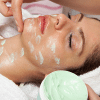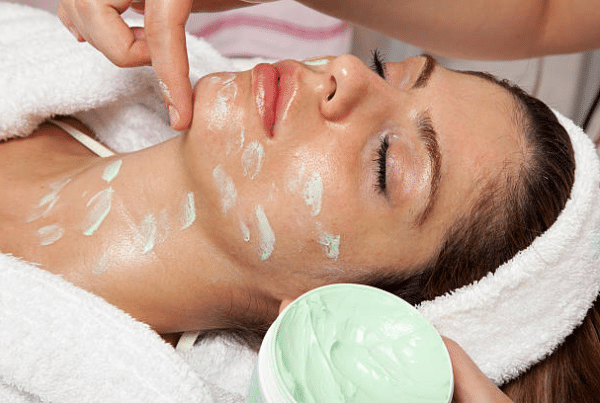Retinol, a derivative of vitamin A, has gained significant popularity in the skincare industry for its remarkable benefits in addressing various skin concerns, including acne. Its effectiveness in managing acne has made it a staple ingredient in many skincare products, ranging from creams to serums. In this article, we delve into how retinol contributes to acne care, its mechanisms of action, types of products available, usage tips, and precautions.
Understanding Acne
Acne is a common skin condition characterized by the occurrence of pimples, blackheads, whiteheads, and sometimes cysts or nodules. It typically occurs when hair follicles become clogged with oil and dead skin cells, leading to the growth of bacteria and inflammation. Factors such as hormonal changes, genetics, and certain medications can contribute to the development of acne.
How Retinol Works on the Skin
Retinol operates by speeding up cell turnover, effectively promoting the shedding of dead skin cells and preventing the clogging of pores. This process helps to unclog pores, reducing the formation of acne lesions. Additionally, retinol possesses anti-inflammatory properties, which can alleviate redness and swelling associated with acne breakouts.
Benefits of Retinol for Acne-Prone Skin
One of the significant advantages of retinol in acne care is its ability to target multiple factors contributing to acne development. It not only unclogs pores but also helps to fade acne scars and hyperpigmentation, resulting in smoother and clearer skin over time. Moreover, retinol can regulate oil production, preventing excessive sebum secretion that can exacerbate acne.
Types of Retinol Products
When considering retinol for acne treatment, individuals can choose between prescription retinoids and over-the-counter retinol products. Prescription-strength retinoids, such as tretinoin and adapalene, are more potent and may provide faster results but often come with a higher risk of irritation. On the other hand, over-the-counter retinol products offer a milder alternative suitable for individuals with sensitive skin.
Different Forms of Retinol Products
Retinol is available in various formulations, including creams, serums, and gels. Each formulation may have different textures and additional ingredients, catering to different skin types and preferences. Creams are typically more hydrating and may be suitable for dry or sensitive skin, while serums and gels are lighter in texture and absorb quickly, making them ideal for oily or acne-prone skin.
How to Incorporate Retinol into Your Skincare Routine
Before incorporating retinol into your skincare routine, it’s essential to conduct a patch test to assess your skin’s tolerance to the product. Begin by applying a small amount of retinol to a discreet area of your skin and monitor for any adverse reactions, such as redness, itching, or burning. If no irritation occurs after 24 hours, you can gradually introduce retinol into your routine.
Frequency of Use
Start by using retinol products every other night to allow your skin to acclimate to the ingredient. As your skin tolerates it well, you can gradually increase the frequency of use to nightly application. However, it’s crucial to listen to your skin and adjust the frequency as needed to prevent overexfoliation and irritation.
Sun Protection
Retinol can increase skin sensitivity to sunlight, making it more prone to sunburn and damage. Therefore, it’s imperative to apply a broad-spectrum sunscreen with SPF 30 or higher during the day, even on cloudy days or when staying indoors. Additionally, consider wearing protective clothing and seeking shade when outdoors to minimize sun exposure.
Common Side Effects
While retinol can yield significant benefits for acne-prone skin, it may also cause temporary side effects, particularly during the initial stages of use. These side effects may include dryness, flakiness, redness, and mild irritation. However, these symptoms typically subside as your skin adjusts to the product.
Precautions for Sensitive Skin
Individuals with sensitive or easily irritated skin should exercise caution when using retinol products. To minimize the risk of irritation, start with a lower concentration of retinol and gradually increase it over time. Additionally, consider using a gentle cleanser and moisturizer formulated for sensitive skin to maintain skin barrier function.
Can retinol make acne worse before it gets better?
It’s not uncommon for retinol to initially cause purging, where existing acne may worsen before improving. This is typically temporary and indicates that the product is working to unclog pores and accelerate cell turnover.
Can retinol be used with other acne treatments?
Retinol can be used in conjunction with other acne treatments, such as benzoyl peroxide or salicylic acid. However, it’s essential to introduce each product gradually and monitor how your skin responds to avoid excessive irritation.
How long does it take to see results from using retinol for acne?
While individual results may vary, noticeable improvements in acne may take several weeks to months of consistent retinol use. It’s essential to be patient and continue using the product as directed for optimal results.
Can pregnant or breastfeeding individuals use retinol for acne?
Pregnant or breastfeeding individuals are advised to avoid retinol and other retinoids due to the potential risk of birth defects. It’s essential to consult with a healthcare professional before using any skincare products during pregnancy or while breastfeeding.
Is it safe to use retinol on sensitive skin?
Retinol can be beneficial for sensitive skin when used cautiously and in lower concentrations. It’s crucial to patch test the product and start with a lower frequency of use to minimize the risk of irritation.
Conclusion
Retinol offers a potent solution for addressing acne concerns, thanks to its ability to unclog pores, reduce inflammation, and improve overall skin texture. By understanding how retinol works and
 5 6 1 . 8 1 0 . 0 5 5 5
5 6 1 . 8 1 0 . 0 5 5 5 








